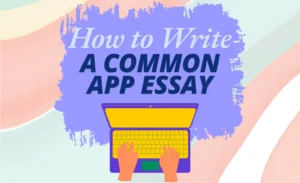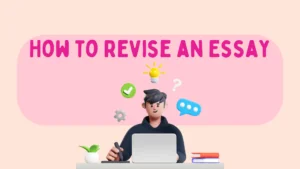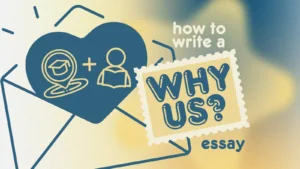Kicking off an essay in a way that grabs your reader’s attention is absolutely key. You might have heard a lot about the importance of a “great hook,” but what does that really mean? Honestly, it’s one of those tips that gets thrown around so much it almost loses its meaning. Yet, the truth is, starting strong isn’t just about flashy first lines; it’s about drawing your reader in so they want to keep reading.

✅ AI Essay Writer ✅ AI Detector ✅ Plagchecker ✅ Paraphraser
✅ Summarizer ✅ Citation Generator
Think about the opening of an essay as the gateway to your thoughts. If you start off strong, you set the tone for everything that follows. In this guide, we’ll walk you through how to craft openings that aren’t just catchy, but also meaningful and well-connected to the deeper points you want to discuss.
Starting an Essay with a Hook
In writing, grabbing your reader’s attention from the get-go is absolutely important, and that’s where a “hook” comes into play. A hook is the first line or sentence in an essay that entices the reader to want to read more. It’s like the bait used to catch a fish, but here, you’re catching your reader.
Here’s a quick run-down to some popular types of hooks you can use to start your essays:
| Type of Hook | Description |
|---|---|
| ❔Question Hook | Start with an intriguing question to make readers think. |
| 🙋♂️ Quotation Hook | Use a relevant quote that enhances your topic. |
| 📊 Statistic Hook | Begin with a surprising fact or statistic. |
| 😁 Anecdotal Hook | Tell a brief, engaging story relevant to the topic. |
| 😳 Shocking Statement | Open with a bold, controversial statement. |
| 🎭 Scene Hook | Describe a scene that sets up your essay. |
| 😂 Humorous Hook | Use humor to lighten the mood and engage readers. |
| 📝 Personal Story | Start with a personal experience to connect emotionally. |
| ☄️ Metaphor/Simile Hook | Introduce your topic with a creative comparison. |
| 🗣 Historical Context Hook | Begin with a historical fact or event related to your topic. |
Each of these hooks serves a unique purpose and can be very effective depending on the type of essay you’re writing and your audience. Starting with a strong hook piques curiosity and connects your readers to your writing right away, setting the tone for a compelling read. So, think about what you want to talk about and choose a hook that will reel your readers in from the very first sentence!

Question Hook Examples
Kicking off with a question isn’t just about asking anything; it’s about sparking curiosity and drawing readers into a conversation right from the start. This type of hook works wonders in essays where you want to engage the reader’s mind immediately. Consider using a question that they can relate to or one that challenges their preconceptions.
- Have you ever wondered what it takes to become a champion? It might not be what you think.
- What if you could change one event from your past; what would it be? The implications might surprise you.
Quotation Hook Examples
Opening with a quotation can immediately lend weight and credibility to your essay. Choose a quote that is provocative, pithy, and pertinent to your topic. This approach is effective in essays that analyze or build upon the thoughts of well-known figures.
- The only thing we have to fear is fear itself.’ How does this powerful statement by Franklin D. Roosevelt resonate in today’s society?
- Martin Luther King Jr. once said, ‘Injustice anywhere is a threat to justice everywhere.’ Let’s explore what this means in the context of current global events.
Statistic Hook Examples
Starting with a statistic can shock and compel readers to pay more attention, especially in essays dealing with factual or research-based topics. Make sure the statistic is relevant and startling enough to catch the reader’s interest.
- Did you know that over 70% of the Earth’s surface is covered by water, yet less than 1% is accessible for direct human use? Let’s dive into what this means for our planet.
- Every 20 minutes, one species on Earth becomes extinct. Consider the impact of this rapid biodiversity loss on our future.
Anecdotal Hook Examples
Anecdotes allow you to share a brief, engaging story that makes your topic more relatable and emotionally resonant. This type of hook is perfect for narrative essays or pieces that need to draw the reader into a personal journey.
- Last summer, I met someone who changed my perspective on giving. Here’s the heartwarming story of how that happened.
- When the earthquake hit, I wasn’t prepared for the chaos that ensued. Here’s a snapshot of those harrowing moments.
Shocking Statement Hook Examples
Using a bold, controversial statement can immediately provoke thought and stir the reader’s emotions. This type of hook challenges readers to rethink their positions and engages them in critical thinking.
- Most people are only two paychecks away from homelessness. Imagine facing such a precarious financial brink.
- Video games do more than entertain; they manipulate minds. Let’s unpack the psychological tactics at play.
Scene Hook Examples
Describing a vivid scene can transport readers right into the middle of your setting, making them feel like they’re part of the story. Use descriptive language to paint a picture that sets the mood of your essay.
- The sun dipped below the horizon, leaving a glow that bathed the city in an eerie twilight. This moment perfectly encapsulated the mystery I was about to unravel.
- Amidst the bustling market, a small, unnoticed stall holds the key to the city’s oldest mystery. Step into this scene as we explore its secrets.
Humorous Hook Examples
A touch of humor can make your writing more enjoyable and memorable. This type of hook is great for lighter topics or essays meant to entertain as well as inform.
- Why did the chicken join a band? To get to the other side of the stage, of course!
- I told my computer I needed a break, and it went to sleep. If only it were that easy for us humans!
Personal Story Hook Examples
Sharing a personal experience offers authenticity and can create a strong connection with the reader. It’s a powerful way to start essays that reflect on personal growth, challenges, or lessons learned.
- I never understood the value of hard work until I earned my first paycheck. Here’s what it taught me.
- Losing the race didn’t just mean I missed a medal—it was a lesson in finding what truly drives me.
Metaphor Hook Examples
Opening with a metaphor invites the reader to think imaginatively and makes complex topics more accessible and engaging.
- High school is a rollercoaster, full of ups and downs and terrifying loops. Let’s navigate this thrilling ride together.
- Life’s challenges are merely stepping stones on the path to success. Each stone, though rough, shapes us.
Historical Context Hook Examples
Starting with a historical fact or event sets the stage for essays that need to provide a backdrop for a deeper discussion on current issues or timeless themes.
- Before 1920, women in the United States didn’t have the right to vote. Imagine a world where half the population is silenced.
- During the Cold War, every political decision was a game of chess with global consequences. Here’s how those moves still affect us.
Each hook type offers a unique way to engage your readers and set the tone for an essay. Choose the one that best suits the mood and objective of your writing to keep your audience hooked from the start!
How to Start an Essay – Writing Your Thesis Statement
Starting an essay can feel like standing at the bottom of a mountain—you know you need to climb it, but where do you plant your flag first? That’s where your thesis statement comes in. Think of it as your essay’s guiding star; it tells your reader what you’re arguing or discussing. A good thesis statement clearly presents your essay’s main idea and your stance on that idea.
Here’s how to nail it: boil down your argument to one punchy sentence. This isn’t the place for vague ideas—be bold and direct. Instead of a broad statement like “Fast food is bad,” sharpen it to “Fast food significantly contributes to health crises such as obesity and diabetes, particularly in urban areas.”
Now, let’s talk about making your thesis statement flow from your hook and background. It’s like telling a story: you set the scene, then you deliver the main event. Start with a hook that grabs attention, add a dash of background to set the scene, and then hit home with your thesis.
Consider these examples:

The first pair works well because the statistic hook sets up a specific scenario that the thesis then addresses, creating a compelling narrative about health and lifestyle choices. The second example starts with a bland truth and follows up with a thesis that lacks depth and specificity, failing to hook the reader or introduce a strong, debatable claim.
Linking your thesis seamlessly to your hook not makes your introduction smooth and strengthens your argument, which makes your essay more engaging and persuasive.
How to Begin an Essay with Background Information
Imagine you’re about to tell a friend a really interesting story, but first, you need to give them a bit of background so they can really get into it. That’s exactly why we weave in some background info at the start of an essay. It’s about setting the scene, so everything that follows makes sense.
Now, you don’t want to bog down your opener with too much detail. Think of it like seasoning food; a little bit enhances the flavor, but too much can be overwhelming. Pick a couple of key pieces of background that support your main point, and stick with those. Say you’re writing about the benefits of biking to work. You might mention briefly how traffic congestion and environmental concerns have increased, which perfectly sets up a discussion on why biking can be a great solution.
How do you fit this smoothly into your essay? Start off with something catchy to grab attention—maybe a surprising fact or a quick, interesting anecdote. Then, layer in your background bits just before you hit them with your main thesis. For example, you might start by saying, “As city streets become increasingly congested, more people are looking for alternatives to the daily car commute.” Then you’d slip in your note about traffic trends and environmental impacts, leading neatly into your argument for cycling as a smart solution.
This way, your essay doesn’t just jump into the deep end. Instead, it takes your reader by the hand and leads them there, making sure they’re totally hooked from the start and ready to hear all about your ideas.
Ways to Start an Essay Using Only Your Tone of Voice
Imagine walking into a room and immediately feeling the vibe—whether it’s upbeat, serious, or somewhere in between. That’s what the tone of voice in your essay does, as it sets the mood and influences how your readers react from the get-go. It’s not a thing to undermine because it lets you guide your reader’s emotions and expectations without them even realizing it.
So, what exactly is a tone of voice? Think of it as the personality of your essay. It’s how you deliver your message—through the choice of words, the structure of sentences, and the overall attitude of the writing. If you’re writing a formal research paper, your tone might be more structured and subdued. But if you’re dishing out advice in a personal blog post, you might go for something more conversational and lively.
Choosing the right tone depends a lot on who you’re talking to (your audience) and what you’re talking about (your purpose). If you’re aiming to persuade, a confident and assertive tone can help make your argument compelling. On the other hand, if you’re explaining something complex, a clear and straightforward tone can make it easier to understand.
Most tips can boil down to two significant things when choosing your tone of voice:
- Know your audience. Are you writing for teenagers, professionals, or academics? Tailor your tone to what resonates with them.
- Match your purpose. Align your tone with your essay’s goal. If it’s to entertain, let your words bring some energy and fun. If it’s to inform, keep it clear and direct.
Starting your essay with the right tone grabs attention and keeps your readers engaged. It’s like the first few seconds of a song—if it hits the right notes, everyone’s sticking around for the whole show. So play around with your words and find the tone that fits just right for your next essay.
FAQ
Follow us on Reddit for more insights and updates.





Comments (0)
Welcome to A*Help comments!
We’re all about debate and discussion at A*Help.
We value the diverse opinions of users, so you may find points of view that you don’t agree with. And that’s cool. However, there are certain things we’re not OK with: attempts to manipulate our data in any way, for example, or the posting of discriminative, offensive, hateful, or disparaging material.